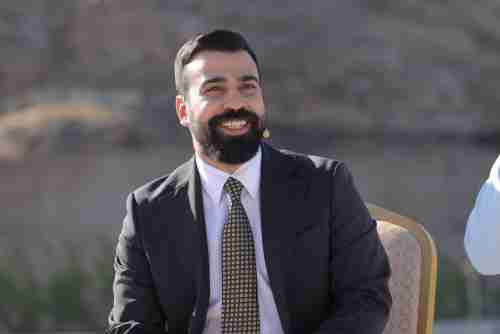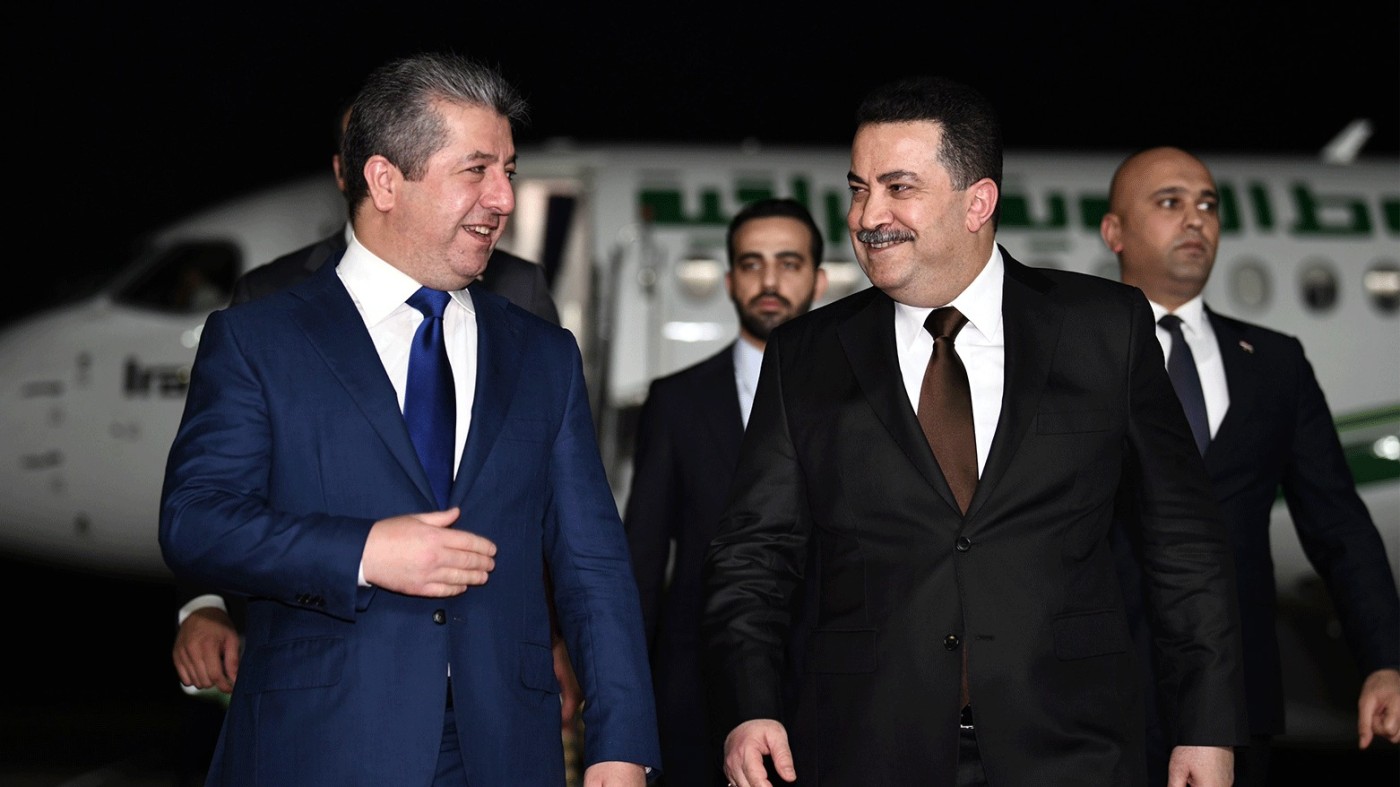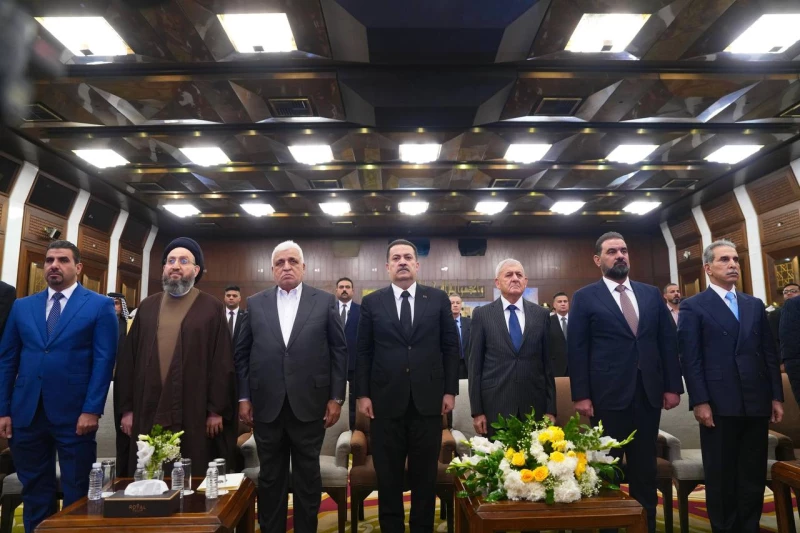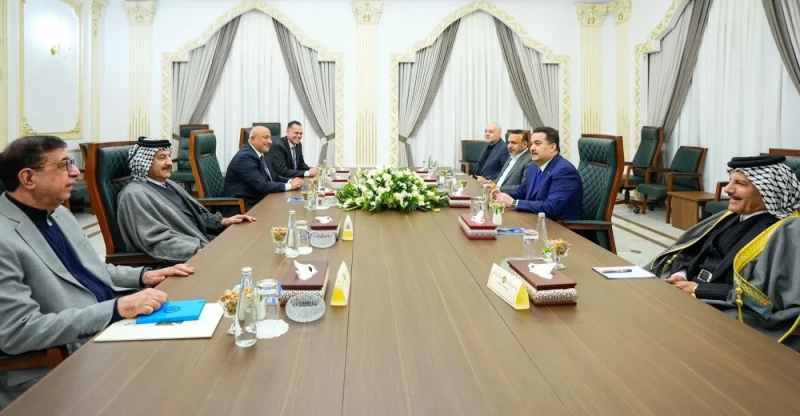ERBIL, Kurdistan Region of Iraq - It took months, but it was finally there. The employees in the Kurdistan Region had not been paid on time for six months, but a statement from the Kurdistan Regional Prime Minister on Wednesday lightened the mood, the Region’s employees would now receive two salaries in a row, and life would return to the market.
The past six months had been extremely rough on thousands of people across the Kurdistan Region who had their livelihoods reliant on salaries being paid by the government.
Years of conflict and unresolved issues between Erbil and Baghdad, and economic sanctions and pressure on Erbil by federal authorities, had pushed employees in the Region to live from paycheck to paycheck.
For many, the financial burden had reached to a point that repaying debts they owed to relatives, friends, and landlords seemed impossible.
The statement from Prime Minister Masrour Barzani on Wednesday delivered good news to many who had lost hope.
It served as a start of something new, perhaps from now on, they would not have to worry about being paid what was rightfully theirs, and the past six months and years of austerity measures would become a story of the past.
“In the next two days, the distribution of February salaries will be over and we will try to start distributing March salaries before Eid,” read the statement from Barzani.
The statement comes as the Muslim world is set to celebrate Eid al-Fitr mid-next week, a three day holiday following the fasting month of Ramadan. Traditionally, people prepare for this holiday ahead of time, and this year, the main worry was that people would not be able to afford celebrating this occasion like they did for years.
It was a team effort, as Barzani put it, and not just from the Kurdistan Regional Government (KRG) side, but also reciprocated from Baghdad.
“I thank the Federal Prime Minister, H.E Mohammed Shia al-Sudani, and all parties who helped in the process of bypassing all the obstacles together,” Barzani said.
The process to reach a common ground took lots of effort, according to Barzani’s statement, but a solution was finally reached between both sides.
Barzani’s statement materialized further when the Iraqi Ministry of Finance on Thursday announced that they had started sending over March salaries to the Kurdistan Region, which meant that the KRG would be able to pay its civil servants starting next week.
“There were many attempts to lead the people of the Region into hopelessness, which is why I want to thank the civil servants of the Region once again for their resilience,” Barzani said.
Erbil and Baghdad reaching an agreement was welcomed by diplomatic missions in the country as well, as they had time and again called on both governments to reach a common ground and make sure the Region’s civil servants are not deprived of their salaries.
“We welcome the announcement of a solution that will allow salary payments to be made for March. It's encouraging to see progress in resolving long standing issues and it shows the benefits of sustained dialogue between the Kurdistan Region of Iraq and Baghdad,” read a UK Consulate in Erbil statement to The New Region on Thursday.
“We urge both sides to maintain this dialogue and cooperation to find a sustainable solution to the issue of salary payments and to other outstanding challenges,” the statement added.
The European Union’s Ambassador to Iraq Thomas Seiler also welcomed the agreement in a Thursday tweet.
The EU Delegation welcomes the agreement made on the allocation of salaries of employees in KRI. We do believe that such agreements contribute to the stability of KRI and Iraq in general. The EU will keep on calling on all actors to find mutually acceptable solutions.
— 🇪🇺 🇮🇶 Thomas Seiler (@EUAmbIraq) April 4, 2024
The KRG had for years relied on oil exports to pay its civil servants, however a halt in oil exports and budget disagreements with Baghdad has led the government to take austerity measures and oftentimes unable to independently fund the salaries of its civil servants.
Exports of the Kurdistan Region’s oil through the Turkish Ceyhan pipeline was halted in March 2023 after Ankara lost a case against Baghdad in a Paris-based arbitration court. The case accused Ankara of breaching a 1973 agreement by allowing the KRG to start selling oil independent of Baghdad.
The ruling ordered Ankara to pay $1.5 billion to Baghdad in compensation for breaching the agreement, however Turkey responded by halting exports through its pipeline.
The Kurdistan Region previously exported just under half a million barrels of oil, including around 75,000 barrels from federal controlled fields in Kirkuk, on a daily basis through the Ceyhan pipeline, however ten months of halted exports has dealt a large economic blow to both the KRG and foreign oil companies working in the Region.
Over the past year, the KRG sent multiple delegations to Baghdad in a bid to resolve the issue of the civil servants salaries, however with oil exports halted, there was no materialization of the meetings, until now.
It was not just oil that had forbidden the two sides from reaching an agreement, but rather political pressure had put negotiations to a standstill, with KRG reiterating on multiple occasions having agreed to handover oil to Baghdad in return for salaries but not having received a tangible response.



 Facebook
Facebook
 LinkedIn
LinkedIn
 Telegram
Telegram
 X
X


